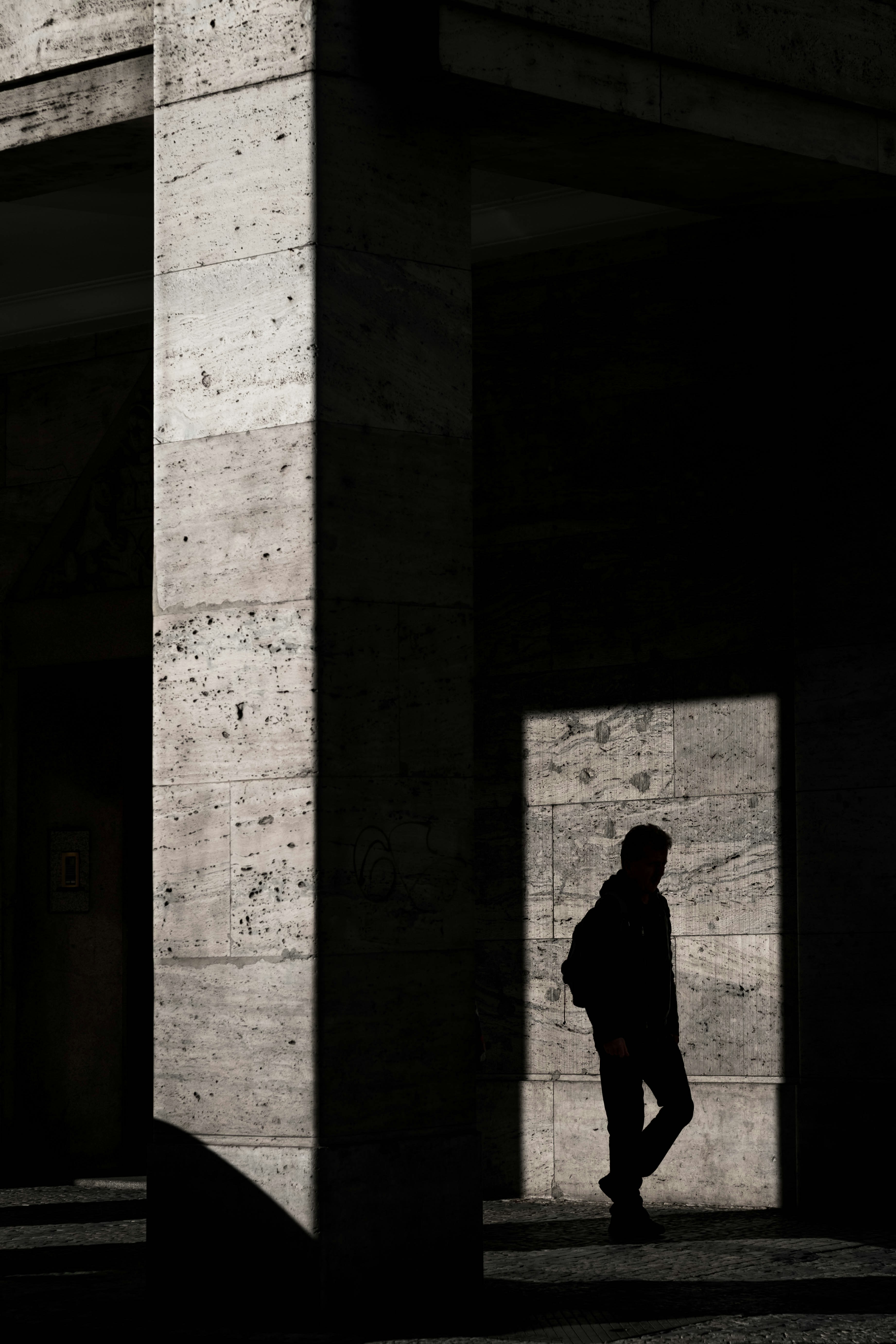September 26, 2025|ד' תשרי ה' אלפים תשפ"ו Rosh Hashana 5786 - Day 2 - The Best Version of Me
Print ArticleReb Zusha of Anipol, the student of the Baal Shem Tov used to tell his students: When I come to Heaven and they ask me "Why weren't you like Avraham Avinu?" I will answer: "because I wasn't Avraham." If they inquire: "Why didn't you match the greatness of Moshe Rabbeinu?" I can answer that I wasn't Moshe Rabbeinu. Even If they try to compare me to my brother Reb Elimelech of Lizensk, I can still say that I wasn't Elimelech. However, if they ask me why I wasn't the way Zusha needed to be...to that I have no answer.
The central story of Rosh Hashana is the story we read this morning, Akeidas Yitzchak, the Binding of Isaac.
I want to take you to the very end of the story.
After Avraham & Yitzchak spend three days making their way to Har HaMoriah, Avraham is about to follow through on Hashem's command, when suddenly:
וַיִּקְרָ֨א אֵלָ֜יו מַלְאַ֤ךְ יְקֹוָק֙ מִן־הַשָּׁמַ֔יִם וַיֹּ֖אמֶר אַבְרָהָ֣ם ׀ אַבְרָהָ֑ם וַיֹּ֖אמֶר הִנֵּֽנִי׃
An angel calls out to Avraham from heaven, and says, "Avraham, Avraham! And Avraham responds, "Here I am".
And the mefarshim, the commentators are confused. At the beginning of the story, Hashem calls Avraham:
וַיֹּ֣אמֶר אֵלָ֔יו אַבְרָהָ֖ם וַיֹּ֥אמֶר הִנֵּֽנִי׃
And Hashem said to him, "Avraham" and he responded, "Here I am".
And now, when the Angel calls Avraham, his name is said two times, "Avraham! Avraham!" So, what changed? Why does the angel now need to say his name twice?
The Ibn Ezra says the simplest explanation: It was a last-minute plea! Hashem waited until the last minute to see if Avraham would actually follow through, and when he was about to do it, the Malach screamed out "Avraham! Avraham!" the way you scream to someone, "Stop, Stop, Stop!" So, as opposed to the initial conversation, where Hashem just needed to calmly get Avraham's attention, the Angel had to call out Avraham's name multiple times to stop him in the act.
The Kli Yakar writes that even with the extraordinary challenge of the Akeida, once Avraham was prepared to do it, he was zoned in. And so, the Malach had to call him multiple times to grab his attention. It was only in that moment that Avraham was so focused, so it was only then that the Malach said his name twice.
But I want to share with you a third approach from the Yalkut Shimoni.
The Yalkut writes that every human being has two images: Our worldly image, and our heavenly image.
- Our worldly image is how we look right now, here on Earth.
- And the heavenly image represents our potential, what we could become.
And it is the job of every single person throughout their life to work hard so that our actual, this-world, image slowly begins to match the potential, heavenly image, the Image of who we can become.
As Avraham stood on Har HaMoriah, having passed his tenth and final test, he had finally reached his potential. At that moment, says the Yalkut, those two images -- the potential Avraham and the actual Avraham became one. And it is for this reason that the Angel calls out Avraham's name two times. The angel was not only calling out to Avraham per se. The angel was signaling to Avraham, letting him know that those two Avraham's -- the actual and the potential - were now one in the same.
In describing how we come before Hashem on Rosh Hashana, the gemara in Rosh Hashana (18a) says:
בראש השנה כל באי העולם עוברין לפניו כבני מרון.
On Rosh Hashana, every human being in the world comes in front of Hashem like Bnei Maron.
The gemara asks, what is Bnei Maron? And it offers three examples:
כבני אמרנא. ריש לקיש אמר: כמעלות בית מרון. רב יהודה אמר שמואל: כחיילות של בית דוד. אמר רבה בר בר חנה אמר רבי יוחנן: וכולן נסקרין בסקירה אחת.
- First answer -- Like sheep
- Reish Lakish: like those who climb up the steps of Maron
- Yehuda in the name of Shmuel: Like the soldiers of David HaMelech.
Each one of these examples describes an accounting that is done one-by-one. If that's true, though, then why, then, do we need all three?
My Rebbe & Mentor Rav JJ Schacter once explained that each of these examples offer a unique challenge to each of us, questions being asked of us as we stand before Hashem on Rosh Hashana:
Bnei Imrina, Sheep: Sheep are passive and submissive. Am I like a sheep, just following the crowd? Or do I make thoughtful decisions that are good for my personal growth?
Steps of Beis Maron: Are steps an important category for me in my life or am I OK with where I am? Do I challenge myself to grow?
K'Chayalos Beis Dovid, like Soldiers: Are there things in my life that I am willing to fight for? Am I willing to push myself for the things that are important in my life, or do I leave the fighting for others?
When we stand before Hashem today, these are the questions that are being asked of us: Am I doing all I can to make sure the image of me down here on Earth is beginning to line up with the image of my potential-self up in Shamayim?
Ari Spitz is an IDF soldier who served in Givati and was injured in battle with Hamas on February 27, 2024. Ari was sedated for six weeks from his injuries. After fighting Hamas, he was now fighting for his life. When he woke up, he learned he had lost both his legs, his right arm, and the thumb of his left hand.
Rav Asher Weiss, one of the leading poskim in Israel, went to visit Ari in the hospital, and Ari asked Rav Asher 4 questions:
- Which arm should he use for tefillin? He was always a righty, but now the right arm was amputated under the elbow, should tefillin now be on the right hand, as that is now his weaker arm?
- I use my left hand to eat, but I have some use with what's left of my right arm. Do I need netilas yadayim on my right as well?
- I hope to have a prosethic by sukkos time, do I use my hand or my prosthetic to hold the Lulav and Esrog?
- Last question: Rav Asher said it brought tears to his eyes: When I receive my prosthetics, when do I say the bracha of Shehechiyanu? When I receive them or when I use them?
Rav Asher said: "I told him, 'I was never asked a question like this', and I was crying, and he looked at me and said: 'Is receiving my prosthetics any less of a simcha than buying a new suit?'
Ari spent months recovering in the hospital, received his prosthetics, and is now walking upright on his own. This past May, at a Yom Ha'Atzmaut event at the Israeli Embassy in Washington, D.C. there were two speakers: Special Envoy Steve Witkoff and Givati Soldier Ari Spitz, who has now become an advocate for the State of Israel.
Edan Alexander, as you all know too-well, was held by Hamas terrorists for 584 terrifying days. After almost two years separated from family and friends, we all saw the beautiful reunion back home in Tenafly a few months ago.
This past Wednesday night, Edan was a guest speaker at the FIDF Gala in New York City. At the dinner he thanked all those who davened for him, who fought for him, those who helped secure his release, and he called for the return of every last hostage. And then he said the following: "Next month, God willing, I will return to Israel. I will once again put on the IDF uniform, and I will proudly serve alongside my brothers," He concluded by saying: "My story does not end with survival; it continues with service."
After every time we blow the shofar in Chazaras HaShas, we will sing the tefillah: "Hayom Haras Olam" which we typically translate as today the world was created. But that is not the correct translation. That would be Hayom Nivra Ha'Olam. The word Haras doesn't mean born or created; it means to become pregnant. Meaning, today is the day when the potential of the world came into existence. Today is the day we are all given a charge not to live up to anyone else's potential, but to choose to live up to our own.
Ari Spitz & Edan Alexander are two of thousands of examples of Jews who could have easily said "I've done enough! I'm good!" and instead asked "What's next? How can I continue to find ways to bring my Earthly self in line with my potential self in Shamayim!"
When we come to heaven we will not be asked why we were not Moshe Rabbeinu. We will be asked something far more piercing: Were you the truest version of yourself, the self that Hashem knows you can become?




